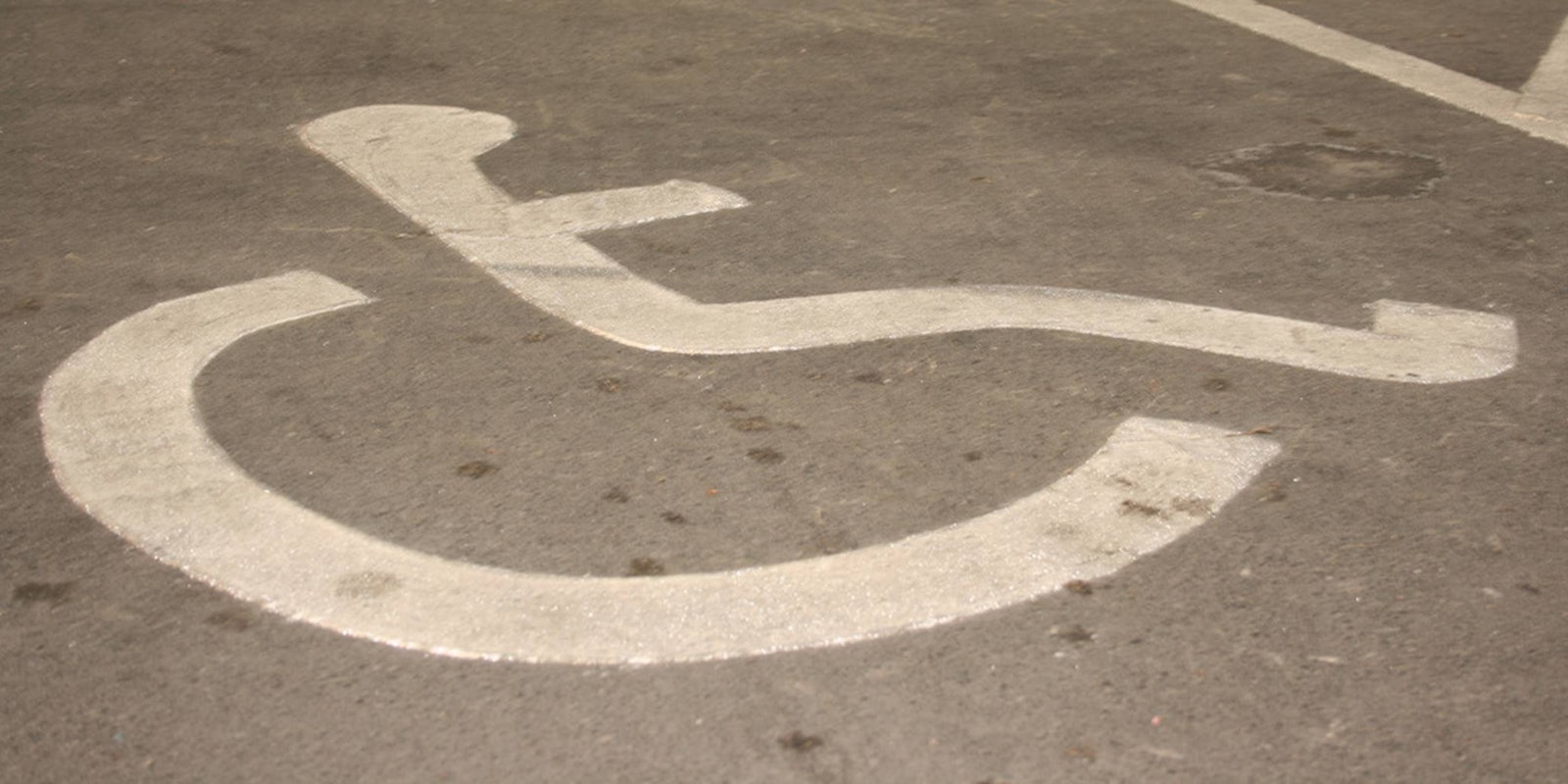While Saturday is going to be a day of public protest and marching across America, marches are inherently inaccessible to a lot of people. Standing for a long time in a massive crowd is difficult or impossible for people with physical limitations, chronic pain and illness, and conditions like anxiety or PTSD. Still, plenty of people with those conditions want their voices heard on Saturday, so a few organized a virtual Disability March.
Disability March asks participants to upload photos of themselves and descriptions of why they are marching to the site, which will create a digital archive of solidarity. Sonya Huber, one of the organizers, says she created the digital march because she couldn’t participate in the Women’s March, due to her autoimmune disorders. ” Just getting into a large event like that, walking, and getting out of the city are all very taxing events for people with health conditions,” she told the Daily Dot over email.
“I began to wonder about other ways to be visible, especially for our community, besides marching—even though the march will of course include many disabled people,” Huber told Mashable. “Since the disabled community is going to be so impacted by the Republican agenda, it seemed that giving people a platform to tell their individual stories was most appropriate.”
The Trump administration could have a massive negative impact on the disabled community. A repeal of ACA could eliminate necessary coverage, since many disabilities are considered pre-existing conditions that would keep private insurance companies from providing care. In her hearing yesterday, Secretary of Education nominee Betsy DeVos appeared to have no knowledge of IDEA, the federal law requiring disabled children to have access to public education.
The Disability March is an official co-sponsor of the Women’s March on Washington. However, many activists have complained that disability rights are only passively mentioned in Women’s March on Washington’s official platform.
https://twitter.com/realsesmith/status/821459302787354624
The Women’s March appears to have made some changes to the platform recently. There are sections on its site about accessibility to things like sighted guides and ASL interpreters, and it’s partnered with other organizations that fight for disabled rights. “I was disappointed about the original lack of inclusion of disability,” said Huber, but she recognizes the march made changes. “I think we are all learning from each other, and that’s what we need to make a better world.”
But what the Disability March proves is that there is no “right” way to protest. Marches are not the best choice for everyone, whether it’s because of a disability, not being able to take hours off work, or not having access to child care. Marching is just one way to be politically active.
Editor’s Note: This piece has been updated throughout to include the response of Sonya Huber.


